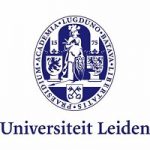项目介绍
Are you interested in working with data-driven methods that make decisions over time, with the support of competent and friendly colleagues in an international environment? Are you looking for an employer that invests in sustainable employeeship and offers safe, favorable working conditions? We welcome you to apply for a PhD position at Uppsala University.
Uppsala University has a long tradition of successful research – among its alumni are 16 Nobel Prize laureates, including, most recently, Svante Pääbo. The University is unique when it comes to combining IT with wider research, from life sciences to the humanities, and this collaboration is currently facilitated by AI4Research and the Centre for Interdisciplinary Mathematics.
The Department of Information Technology holds a leading position in both research and education at all levels. We are currently Uppsala University’s third largest department, having around 350 employees, including 120 teachers and 120 PhD students. Approximately 5,000 undergraduate students take one or more courses at the department each year. You can find more information about us on the Department of Information Technology website.
At the Division of Systems and Control, we develop both theory and concrete tools to design systems that learn, reason, and act in the real world based on a seamless combination of data, mathematical models, and algorithms. Our research integrates expertise from control theory, machine learning, optimization, and network science, spanning diverse application domains such as energy systems, biomedical systems, neuroscience, and safety and security.
The Division of Systems and Control enjoys a wide network of strong international collaborators all around the world, for example at the University of Cambridge, University of Oxford, Imperial College, University of British Columbia, University of Sydney, University of Newcastle and Aalto University. We strive for all PhD students to get a solid international experience during their PhD.
Project description
For many systems of interest, for instance in industries, utilities or health-care settings, decisions that affect their behavior are made sequentially as data is collected over time.
This project is focused on basic research into theory and methods for sequential decision-making that adapts to the information obtained from systems over time. The aim is to develop new ideas for a broad class of problems in, e.g., adaptive experiment design, sensor fusion, and resource management. The problems will be grounded in applications to ensure that our research is relevant in real-world settings, including batteries, inventory management, power systems, etc.
The exact research topic is decided in a dialogue between the doctoral student and the supervisor.
The position is funded by the Wallenberg AI, Autonomous Systems and Software Program (WASP), which is Sweden’s largest individual research program ever, a major national initiative for strategically motivated basic research, education and faculty recruitment. The program addresses research on artificial intelligence and autonomous systems acting in collaboration with humans, adapting to their environment through sensors, information and knowledge, and forming intelligent systems-of-systems.
The vision of WASP is excellent research and competence in artificial intelligence, autonomous systems and software for the benefit of Swedish society and industry.
The graduate school within WASP is dedicated to provide the skills needed to analyze, develop, and contribute to the interdisciplinary area of artificial intelligence, autonomous systems and software. Through an ambitious program with research visits, partner universities, and visiting lecturers, the graduate school actively supports forming a strong multi-disciplinary and international professional network between PhD-students, researchers and industry.
For more information about WASP, please see WASP’s webpage and their page about the graduate school.
Duties
A doctoral student will devote their time to graduate education mainly. The rest of the duties may involve teaching at the Department, including also some administration, to at most 20%.
RequirementsTo meet the entry requirements for doctoral studies, you must
- hold a Master’s (second-cycle) degree in engineering physics, electrical engineering, applied mathematics, mathematical statistics, or in a similar field, or
- have completed at least 240 credits in higher education, with at least 60 credits at Master’s level including an independent project worth at least 15 credits, or
- have acquired substantially equivalent knowledge in some other way.
The specific requirements are met by having passed exams in areas relevant to the subject of machine learning with a minimum of 90 higher education credits. Relevant courses include, for example, statistics, machine learning and courses in neural networks, as well as courses in mathematical modeling and statistics, or equivalent.
We are looking for candidates with
- a strong interest in statistical learning,
- good communication skills with sufficient proficiency in oral and written English,
- excellent study results,
- high proficiency in programming (preferably in Python, Julia or Matlab),
- personal characteristics, such as a high level of creativity, thoroughness, and/or a structured approach to problem-solving are essential.
Additional qualifications
Experience and courses in one or more subjects are valued: estimation theory, machine learning, optimization, signal processing, system identification, and control theory.
Rules governing PhD students are set out in the Higher Education Ordinance chapter 5, §§ 1-7 and in Uppsala University’s rules and guidelines.
Application
The application must include:
1) a statement (at most 2 pages) of the applicant’s motivation for applying for this position, including a self-assessment on why you would be the right candidate for this position;
2) a CV;
3) degrees and transcript of records with grades (translated to English or Swedish);
4) the Master’s thesis (or a draft thereof, and/or some other self-produced technical or scientific text), publications, and other relevant documents;
5) references with contact information (names, emails and telephone number) and up to two letters of recommendation.
All applicants should state the earliest possible starting date of employment.
About the employment
The employment is a temporary position according to the Higher Education Ordinance chapter 5 § 7. Scope of employment 100 %.Starting date 15 August or as agreed. Placement: Uppsala.
For further information about the position, please contact: Associate Professor Dave Zachariah (dave.zachariah@it.uu.se) or Associate Professor Per Mattsson (per.mattsson@it.uu.se).
Please submit your application by 15 May 2024, UFV-PA 2024/1208.
Are you considering moving to Sweden to work at Uppsala University? Find out more about what it´s like to work and live in Sweden.
Uppsala University is a broad research university with a strong international position. The ultimate goal is to conduct education and research of the highest quality and relevance to make a difference in society. Our most important asset is all of our 7,600 employees and 53,000 students who, with curiosity and commitment, make Uppsala University one of Sweden’s most exciting workplaces.
Read more about our benefits and what it is like to work at Uppsala University
https://uu.se/om-uu/jobba-hos-oss/
联系方式
电话: +46 18 471 00 00相关项目推荐
KD博士实时收录全球顶尖院校的博士项目,总有一个项目等着你!






